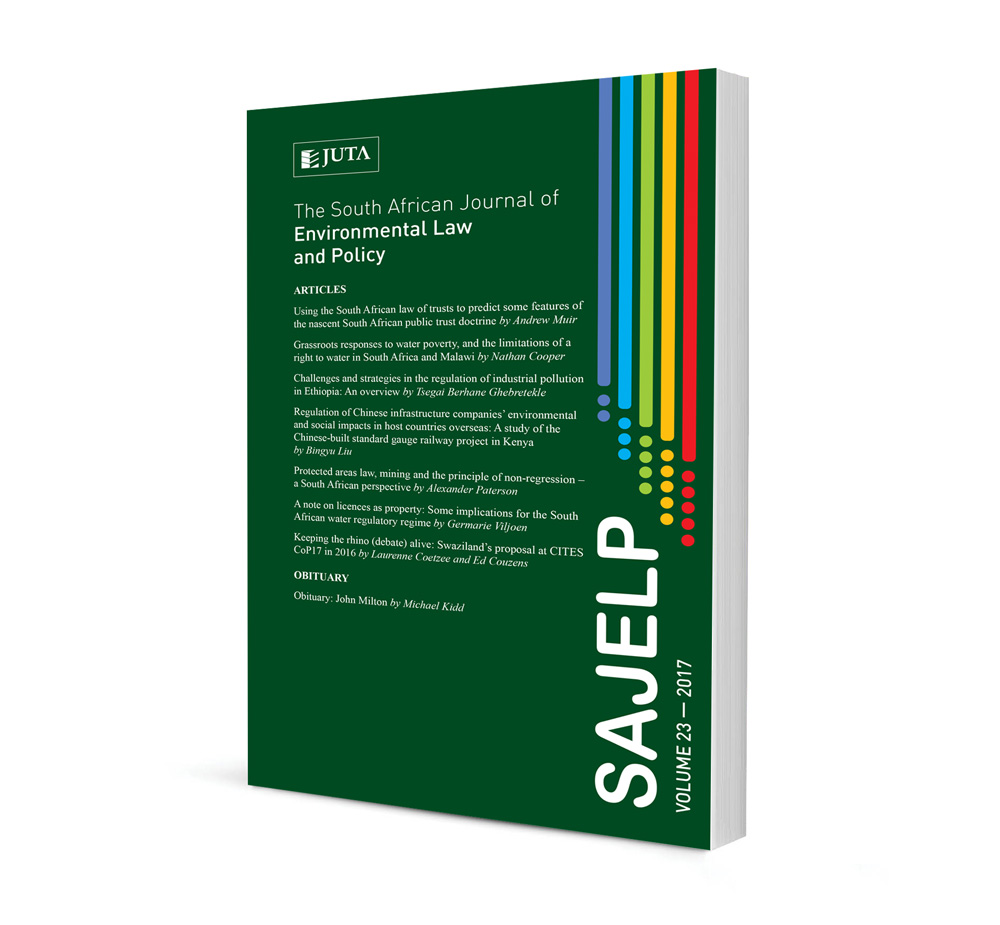
Keeping the rhino (debate) alive: Swaziland’s proposal at CITES CoP17 in 2016
Authors Laurenne Coetzee, Ed Couzens
ISSN: 2616-8499
Affiliations: Masters Env. Law candidate, University of Sydney Law School; Associate Professor, University of Sydney Law School
Source: South African Journal of Environmental Law and Policy 2017, p. 217 – 254
Abstract
Rhinoceros poaching is currently at crisis levels, particularly in South Africa — the country having lost more than 7,000 animals in the last decade from a population of approximately 25,000. One of the most successful conservation programmes of all time, the recovery of the rhinoceros, is now seriously threatened. No single measure at present seems capable of preventing poaching, given the strength of the criminal networks driving the illegal trade and the capacity of the market which the illegal trade is supplying. At the 17th Conference of the Parties to the Convention on International Trade in Endangered Species of Wild Fauna and Flora (CITES), in 2016, Swaziland put forward a proposal to open a legal market for rhino horn — a proposal which Swaziland must have known was doomed to fail, given the current strength of international concern over the poaching crisis. That Swaziland still thought it worth putting the proposal forward probably indicates that the country wished to keep its sustainable use philosophy ‘on the agenda’. If a legal trade is to provide part of the eventual solution, then it is unlikely that it will ever do so on its own, however — what is therefore needed is for the proponents of a legal market to demonstrate how exactly it would complement, supplement and support other efforts. South Africa, following a Committee of Enquiry’s recommendation that such an integrated approach be adopted, did not put forward a proposal at CITES CoP 16 and is now moving toward greater integration of strategies. Ultimately, it may be that a legal trade will be an element in a successful suite of management options; and for that reason Swaziland’s proposal, insofar as it kept this option in the public eye and reminded Parties of the an interest that needs to be accommodated, is worth considering and locating within the complicated overall context.